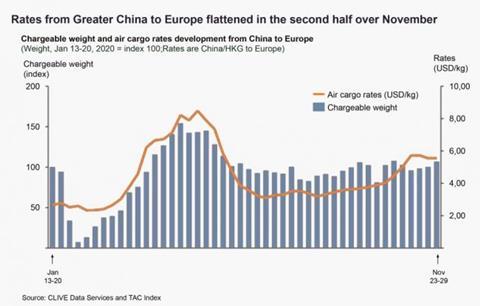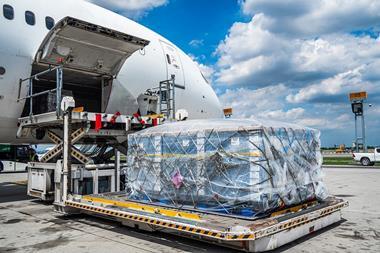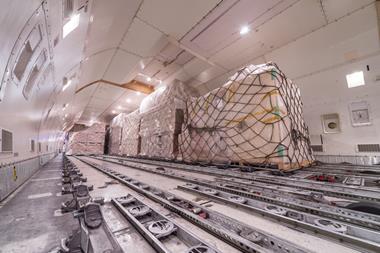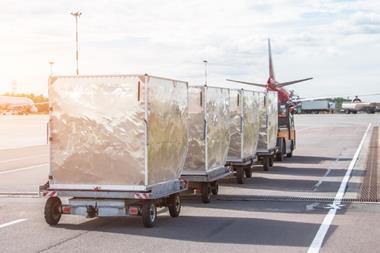Air cargo's road to recovery took a slight hit in November, as "airlines' hopes of a boost failed to materialise".
According to CLIVE Data Services' most recent figures, last month saw a 1% year-over-year fall in airfreight demand — the first decline reported in six months.
In recent months, the gap in year-on-year air cargo volumes has been steadily closing in — from -37% in April to -12% in October.
However, in November, demand fell again to -13% as the coronavirus continued to take its toll on global trade and international supply chains.
Meanwhile, available capacity in November declined by 21% year on year.
"Consequently, despite rising to 72% in the opening two weeks of November, the dynamic load factor reduced to 70% for the second half of the month which, although 5% points higher year-on-year, was still below the 8% points load factor increase in the month of October 2020," CLIVE Data Services said.
Tac Index reported that airfreight rates in November increased from Hong Kong and China to Europe, month-over-month, by 30% and 24% respectively.
Rates from Hong Kong to Europe and the United States flattened towards the end of the month.

Niall van de Wouw, managing director at CLIVE Data Services, commented: "We saw a levelling off develop at the end of October which we stated might be indicative of a market which was cooling off a little, and this was indeed the case.
"After six months of small but encouraging improvements, the stalling of demand in November — typically a peak month when we’d expect dynamic load factor growth — could be seen as a further negative indicator.
"However, we must contrast this with the impact of lockdowns and restrictions imposed by governments to slow the second wave of Covid, especially in Europe and the US, and the corresponding disruption to business continuity and consumer confidence. Against this uncertain operating environment, the global air cargo market in November arguably showed a degree of resilience.
"The air cargo industry can also take some comfort from the positive news of successful vaccine developments and the global demand shipments of the vaccine will hopefully produce for air cargo supply chains. This will also bring more capacity to the market and hopefully coincide with a rise in consumer spending, which is hopefully a prelude to a more sustainable recovery in 2021."
Robert Frei, business development director at Tac Index, added: “This is a fluctuating market. The increase in rates is likely to be the result of airlines selling more capacity on the short-term market and forwarders securing air cargo capacity through charter arrangements.
“Overall, in November, we did not see the rates one would have expected based on earlier anticipation of a strong peak season.”










